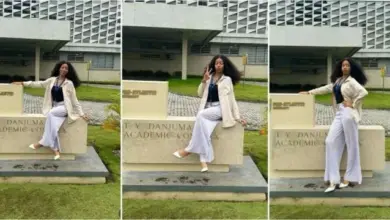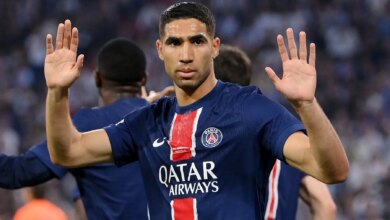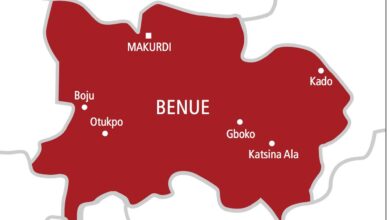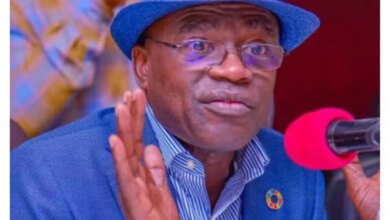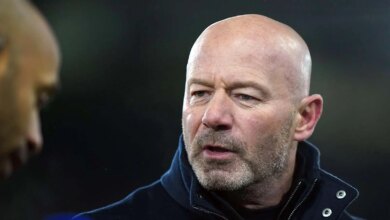Ivorian President Alassane Ouattara’s disputed fourth-term victory fuels refugee influx, testing West African Democracy
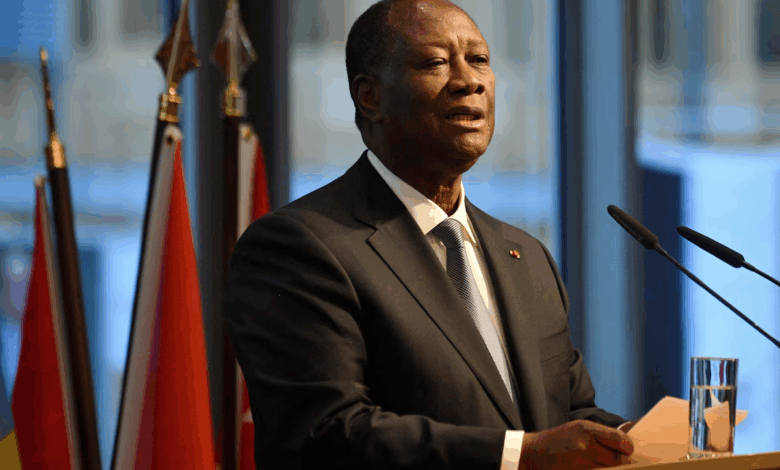
Côte d’Ivoire’s political stability has entered a critical post-election phase. President Alassane Ouattara’s disputed fourth term—his third consecutive re-election victory since 2010—has solidified a profound crisis of democratic legitimacy within the country, immediately validating a cross-border humanitarian crisis confirmed by refugee flows into Ghana’s Western Region. This recurring influx of Ivorian citizens, fueled by the contentious provisional results of the October 25, 2025, presidential vote, has forced Ghanaian authorities to intensify security measures. Accra is transitioning from monitoring pre-election anxiety to actively managing the concrete threat of post-election instability and potential regional contagion.
Ordinary Ivorians fear a repeat of the deadly 2010–2011 post-election conflict; the 2020 violence also remains a painful memory. This dread drives vulnerable populations, including women, children, and the elderly, from their homes toward the Ghanaian border, highlighting the immense regional stakes of Ivorian political stability.
Fati Koné, a mother of three who arrived at the Elubo border post late Monday, succinctly captured the sentiment: “We didn’t wait for the fighting to start this time. We just packed the children and ran. We left everything—my shop, my home. But Ghana is safe, and we are seeking peace. That is all.” This silent dread is rooted in tragic history. As one Ivorian, Konan Yvonne, recounted about a previous crisis: “Here, people were burned alive, houses and shops were pillaged. We live with this fear. Every time we talk about elections, there is panic.” (The events described refer to the deadly 2010–2011 post-election violence).
Ouattara: The IMF Economist Turned President
The current president is one of the most prominent international figures in Ivorian history. An economist by training with a Ph.D. from the University of Pennsylvania, Ouattara served as Deputy Managing Director of the International Monetary Fund (IMF) and Governor of the Central Bank of West African States (BCEAO) before entering national politics. His technocratic background is the foundation of his administration’s reputation for economic performance, but his career was also entangled in the political crisis of Ivoirité, a controversial national identity law used by opponents to question his eligibility to run for office decades ago. This history makes the current constitutional fight a recurring theme in his political life. It is this long and contentious history that informs his controversial decision to leverage the 2016 constitutional change to bypass term limits.
The Constitutional Crisis: Resetting the Clock
The current crisis stems directly from long-term constitutional revisionism and judicial exclusions. President Alassane Ouattara, 83, secured a controversial fourth term by arguing that a major constitutional change implemented in 2016 effectively “reset the clock” on the maximum two-term limit—a legal maneuver widely condemned by detractors as democratic backsliding.
The victory was widely anticipated as major opposition leaders were systematically excluded. Former President Laurent Gbagbo was barred over a criminal conviction, and former Credit Suisse CEO Tidjane Thiam was disqualified due to citizenship issues, which a court ignored. The opposition, having called for a boycott, immediately rejected the results, denouncing the election as a “civilian coup d’etat.” The final outcome will be announced by the Constitutional Council after it rules on any election petitions.
The Political Chasm: Economy vs. Legitimacy
The non-competitive nature of the election solidified a profound political divide. Ouattara secured 89.8% of the provisional vote, leveraging a record of massive infrastructure development and sustained economic growth (averaging 6-7% annually) that is unrivaled in the sub-region. However, this landslide victory is undermined by the question of democratic legitimacy: voter turnout reached only 50.1%, reinforcing the opposition’s claims that the vote was illegitimate. The results confirmed that businessman Jean-Louis Billon came in a distant second with only 3.09% of the vote, and former First Lady Simone Gbagbo garnered 2.42%. While Ouattara points to macro-economic success, critics argue this wealth has not “trickled down,” pointing to a persistent poverty rate of nearly 37.5% and high youth unemployment, which provides fertile ground for political dissent.
Voices from the Dispute and the Border
The political chasm is starkly illuminated by the conflicting reactions from key figures.
The Government’s Stance: The Ouattara administration maintains its position of constitutional legality, pointing to the 2016 constitutional changes. In a post-victory address, President Ouattara focused on continuity, stating, “The people have chosen stability, economic progress, and constitutional continuity. This mandate is clear, legally sound, and focused entirely on securing Côte d’Ivoire’s future as the economic engine of West Africa.” Communications Minister Amadou Coulibaly previously asserted that “the president is exercising his legal right under the constitution.”
The Opposition’s Rejection: The sentiment of exclusion is palpable. Opposition candidate and former First Lady Simone Gbagbo stated: “Ouattara believes he is so well positioned that he can win everything.” Similarly, Thiam described the event as “not a real election,” unfolding in a climate of fear. The opposition group, which includes the parties of Gbagbo and Thiam, denounced the election as a “civilian coup d’etat,” saying they would not recognise Ouattara as a validly elected leader.
The Civilian Fear: This feeling of inevitability and democratic erosion is echoed by Ivorians seeking safety. One asylum seeker, Glazibo, summed up the prevailing fear at the Ghanaian border: “The same election who brings war, it will be the same election that comes just now to Côte d’Ivoire… peace no dey at Côte d’Ivoire.” The decision to flee is a matter of survival, not politics.
Regional Contagion and Ghana’s Balancing Act
Ouattara’s fourth term, facilitated by constitutional changes, risks normalizing “constitutional engineering”—a practice that analyst Durmaz, a senior analyst at Verisk Maplecroft, warns “is likely to view… as reinforcing… democratic decline in West Africa.” This trend is especially concerning given the recent wave of military coups in the Sahel.
The crisis places intense scrutiny on the African Union (AU) and ECOWAS. Côte d’Ivoire is a strategic economic powerhouse; its disputed result serves as a direct test of ECOWAS’s commitment to democratic principles and its ability to halt the regional trend of democratic backsliding. The regional bloc is criticized for its inconsistent enforcement, often condemning military takeovers while showing less resolve against term limit extensions.
Instability in Abidjan directly translates to market volatility and cross-border security headaches for Accra. Ghana and Côte d’Ivoire share deep economic and cultural ties, particularly as the world’s two largest cocoa producers. Ghanaian authorities are maintaining a strategy of securitization of migration, with joint security teams deployed to the Elubo border.
Assistant Commissioner Owusu of the Ghana Immigration Service, deployed at the Elubo crossing, emphasized the security dimension: “Our mandate is clear: we must maintain the integrity of our border. Every single arrival is processed meticulously to differentiate genuine asylum seekers from those who might seek to exploit this crisis for criminal or subversive purposes.” Meanwhile, Tetteh Padi from the Ghana Refugee Board confirmed: “We are processing Ivorians entering Ghana for asylum.”
Ghana must uphold robust border security to prevent “security contamination” while simultaneously honoring its humanitarian commitment. This dual imperative forces Accra into a precarious diplomatic balancing act: maintaining stability while avoiding actions that could be interpreted as interference in its neighbour’s internal affairs.
DISCLAIMER: The Views, Comments, Opinions, Contributions and Statements made by Readers and Contributors on this platform do not necessarily represent the views or policy of Multimedia Group Limited.
DISCLAIMER: The Views, Comments, Opinions, Contributions and Statements made by Readers and Contributors on this platform do not necessarily represent the views or policy of Multimedia Group Limited.
Source link

